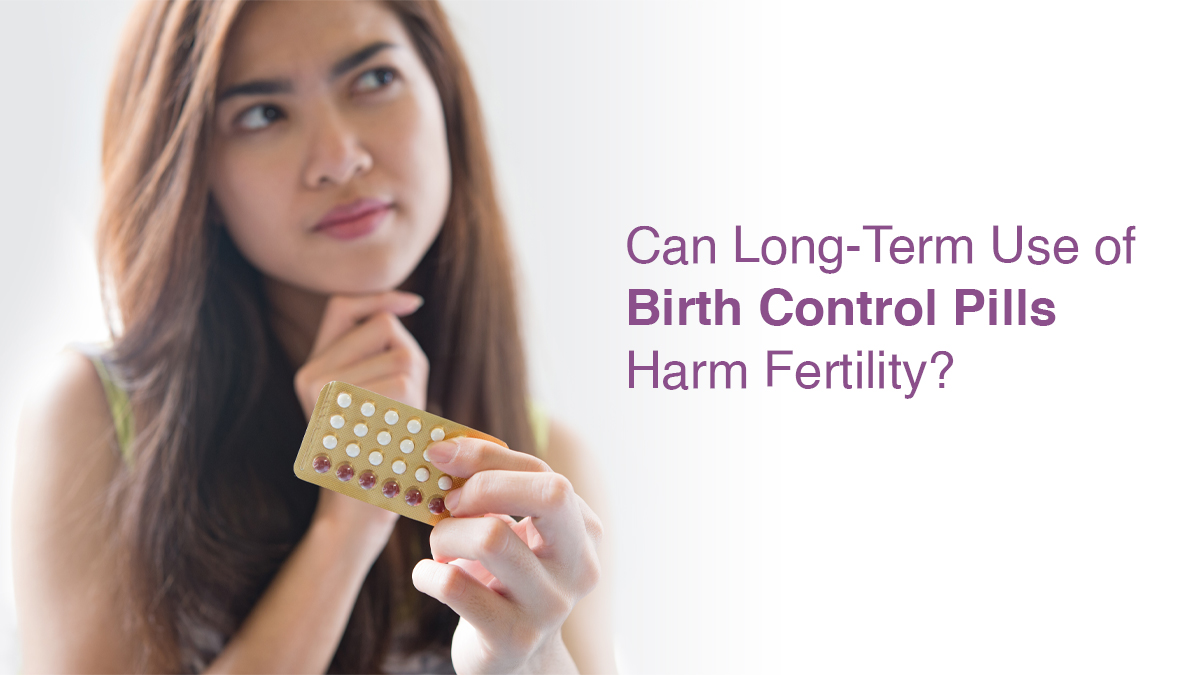
PCOS and its Adverse Effects on Fertility

PCOS or Polycystic ovarian syndrome is an endocrinal disorder which affects women in their reproductive years. It approximately affects 5-10% of young women and often leads to infertility. Women suffering from this condition experience irregular periods, abnormal hair growth, acne, and their ovaries might contain multiple small cysts.
PCOS affects the reproductive organs of women that produce progesterone and estrogen — the hormones that control the menstrual cycle. The ovaries also provide a small number of male hormones called androgens. In the condition of PCOS, the androgens are excessively produced and this, in turn, disturbs the regular function of the ovaries, and might also lead to the formation of cysts.
The primary functions of the ovaries are the maturation of the eggs and their regular release. When a healthy egg is not released, then it cannot be fertilized by a sperm. Therefore, your chances of getting pregnant are reduced. PCOS can be a reason for you to miss your periods or have irregular periods. This is one of the preliminary indicators that you might be suffering from PCOS.
The symptoms of PCOS are – Irregularities in the menstrual cycle, excess hair growth, hormonal changes, and irregular weight patterns. If left untreated, PCOS can lead to infertility problems, and other complications, like cysts on the ovaries, sleep apnea, high-stress levels, high blood pressure, acne, oily skin, and dandruff. High cholesterol and triglycerides, acanthosis nigricans, or dark patches of skin, fatigue, male pattern, balding, insulin resistance, type 2 diabetes, pelvic pain, depression and anxiety, weight management difficulties including weight gain or trouble losing weight, excessive facial and body hair growth and decreased libido are some additional symptoms.
PCOS negatively affects fertility because women with this condition do not ovulate, or release an egg regularly in each month due to the overproduction of estrogen by the ovaries. In absence of ovulation, periods become irregular, and the increased levels of hormones, like testosterone, affect the oocyte quality, inhibit ovulation, lead to insulin resistance, and increase the risk of various disorders, such as gestational diabetes.
For those women, who are suffering from PCOS and trying to conceive, the first step towards treatment is lifestyle modification that includes a healthy diet and exercise. The foods recommended for the PCOS patients include those with lower carbohydrates and a reduced glycemic load. It is advised that exercise in PCOS patients of at least 30 minutes, three times per week can deliver many positive results.
For some cases, women with PCOS require treatments, such as In-vitro Fertilization (IVF) for achieving a healthy pregnancy. In this case, the process of IVF (In vitro Fertilization) is a laboratory procedure where the egg is fertilized with the sperm in a laboratory vessel, and the embryo is implanted into the woman’s uterus. The eggs are fertilized in vitro, and then a resulting embryo (fertilized egg) is typically placed into the woman’s uterus after three to five days of growth. Additional embryos can be frozen (cryopreserved) for future use.
At Oasis, we firmly believe that parenthood is indeed a very important requirement in a couple’s life. We are determined to fulfill this dream for the couples who are unable to conceive through IVF. The success ratio of IVF at Oasis clinic is 60-70%. Please, click on the IVF tab for more information on the process.


fill up the form to get a
Free Consultation
Avail 0% interest on EMI
All Procedures | No Upper Limit
How we reviewed this article:
- Current Version
- May 5, 2020 by ShootOrder





